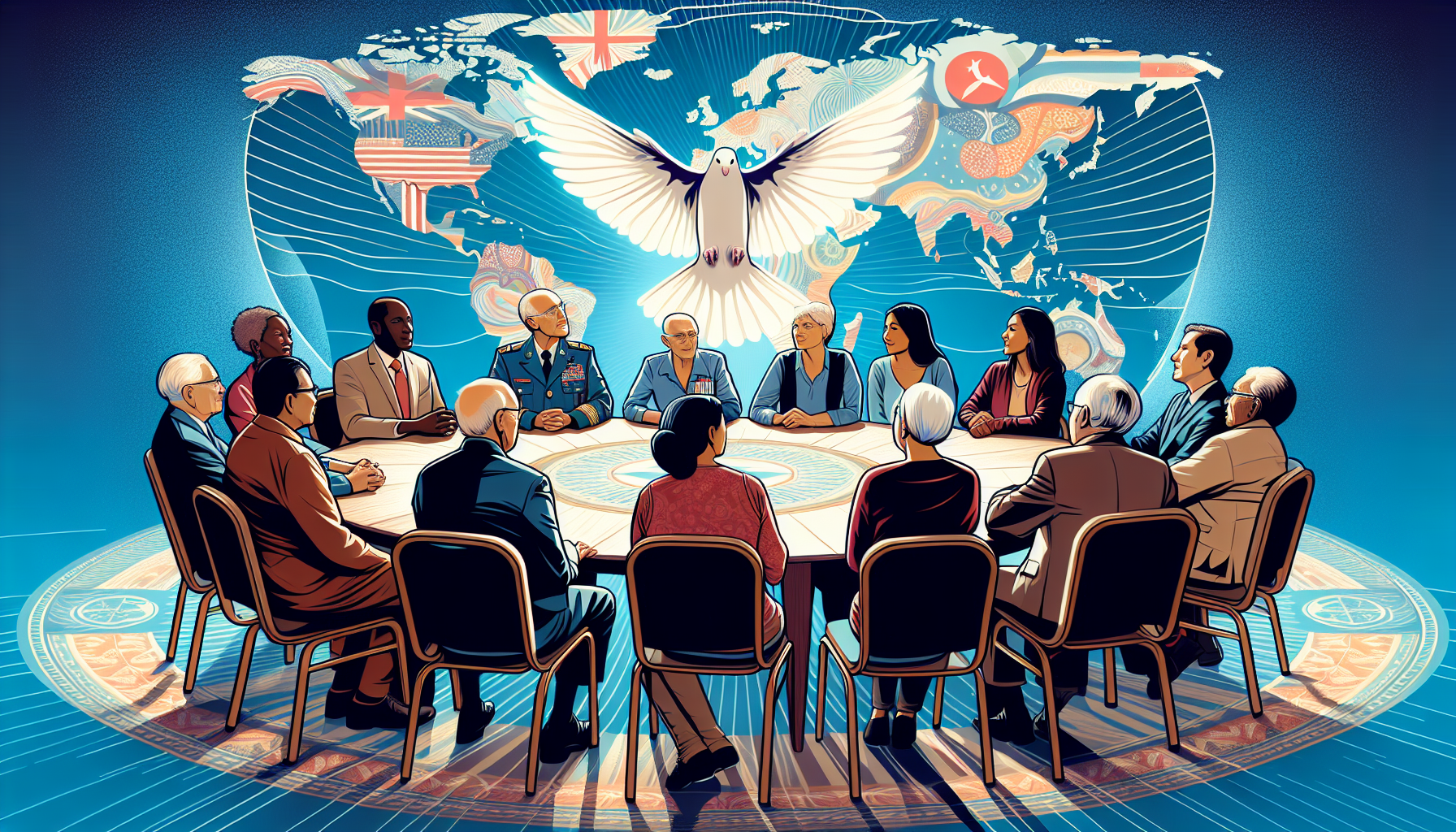Definition
Conflict prevention refers to the strategies and measures implemented to prevent the occurrence or escalation of violent conflict. It involves analyzing the potential causes of conflict, and actively seeking solutions to mitigate them. Prevention may include diplomatic measures, economic incentives or sanctions, early information gathering, and early warnings to deter threats.
Key Takeaways
- Conflict prevention refers to the use of diplomatic, military, and political resources to avoid or cease conflicts before they escalate into war or any form of major violence. It focuses on proactive measures to minimize hostility and contention.
- Conflict prevention involves various strategies such as promoting human rights, strategic communication and relationship-building, maintaining law and order, and resolution of ongoing disputes, all aimed at maintaining peace and stability.
- The successful implementation of conflict prevention can lead to a more peaceful and safer world, reducing the need for costly military interventions, and contributes to sustainable development and human rights protections worldwide.
Importance
Conflict prevention is a critically important concept in military operations due to its strategic role in maintaining peace and stability, both internationally and domestically. It entails proactive measures taken to recognize, prevent, or contain potential violence or warfare.
These measures can include diplomatic negotiations, economic sanctions, and peacekeeping missions. By preventing conflicts before they escalate, the military not only saves lives, resources, and infrastructure, but also upholds international law and order.
Moreover, conflict prevention allows for more consistent political relations between nations, supporting global cooperation and preventing humanitarian crises. Thus, conflict prevention is a pivotal factor in global security, making it a core element of military operations.
Explanation
Conflict prevention pertains to measures taken to reduce tensions and the risk for violent conflict in order to maintain stability and security. These actions, which can be either diplomatic or military in nature, aim to address root causes of conflicts such as social inequality, resource scarcity, or political instability before they escalate into full-blown warfare or crisis.
The purpose of conflict prevention is to ensure that various disputes and tensions are resolved peacefully and do not evolve into situations that would necessitate armed intervention. This can be accomplished through dialogue, mediation, or negotiation, with the aim of reducing tensions, building trust, fostering understanding, and preventing escalation.
This strategy is particularly important to global peacekeeping efforts, where the focus is generally on maintaining peace and preventing reoccurence of conflict in area already experienced violence. It can include activities such as disarmament, demobilisation and reintegration (DDR) of ex-combatants, fostering reconciliation and peacebuilding in post-conflict societies, or even preemptive efforts to address societal strife before it reaches a tipping point.
Ultimately, the intent behind conflict prevention is to proactively tackle the causes and symptoms of conflict, such that the human and economic costs associated with war can be mitigated or avoided altogether.
Examples of Conflict prevention
The Dayton Agreement (1995): One of the most successful examples of conflict prevention carried out by the military was the Dayton Agreement. The United States led NATO intervention in Bosnia and Herzegovina, which put an end to the Bosnian War. It resulted in the partitioning of Bosnia and Herzegovina into two entities – the Federation of Bosnia and Herzegovina and Republika Srpska, thereby preventing further ethnic conflict in the region.
The Gambia Intervention (2017): The Economic Community of West African States (ECOWAS) led a military intervention in Gambia to prevent a potential conflict following disputed presidential elections. The military action paved the way for a peaceful transition of power and prevented possible military conflict and a potential humanitarian crisis.
The Korean Demilitarized Zone (DMZ): The DMZ between North and South Korea is one of the most heavily militarized borders in the world. Since the Korean Armistice Agreement in 1953, it has served as a buffer zone to prevent direct military conflicts between the two nations. Despite tense situations, the maintenance of the DMZ has thus far prevented a full-scale war.
FAQs about Conflict Prevention
What is conflict prevention?
Conflict prevention refers to the various strategies developed and implemented by nations, militaries, and international organizations, with the aim of avoiding disputes from escalating into violent confrontations.
Why is conflict prevention significant?
The significance of conflict prevention lies in the fact that it helps in avoiding the enormous human, material, and societal costs that accompany armed conflicts. It is perceived as a cost-effective and efficient strategy in maintaining peace and security.
What are some strategies for conflict prevention?
Strategies for conflict prevention include diplomacy, effective communication, crisis management, economic and political incentives, legal arrangements, and more. The idea is to detect and address the root causes of conflicts before they escalate.
Who participates in conflict prevention?
Conflict prevention involves a broad spectrum of actors, including nations, armed forces, international organizations, non-governmental organizations, and even local community leaders. The roles and responsibilities of participants may vary depending on the situation.
What is the role of the military in conflict prevention?
The military plays a significant role in conflict prevention. Apart from maintaining security and defense, the military can be engaged in preventative deployment, peacekeeping operations, and providing support to civil authorities during times of internal disturbances.
How effective is conflict prevention?
The effectiveness of conflict prevention largely depends on a range of factors including the accuracy of threat assessments, timeliness of response, the willingness of parties to resolve disputes amicably, and availability of resources. When successfully implemented, conflict prevention can help in de-escalating potential crises.
Related Military Operation Terms
- Conflict Resolution Techniques
- De-Escalation Training
- Risk Assessment
- Post Traumatic Stress Disorder
- Psycho-Social Support
Sources for More Information
- United Nations: Conflict Prevention
- United States Institute of Peace
- North Atlantic Treaty Organization (NATO)
- International Crisis Group
 Benefits.com Advisors
Benefits.com Advisors
With expertise spanning local, state, and federal benefit programs, our team is dedicated to guiding individuals towards the perfect program tailored to their unique circumstances.
Rise to the top with Peak Benefits!
Join our Peak Benefits Newsletter for the latest news, resources, and offers on all things government benefits.




















